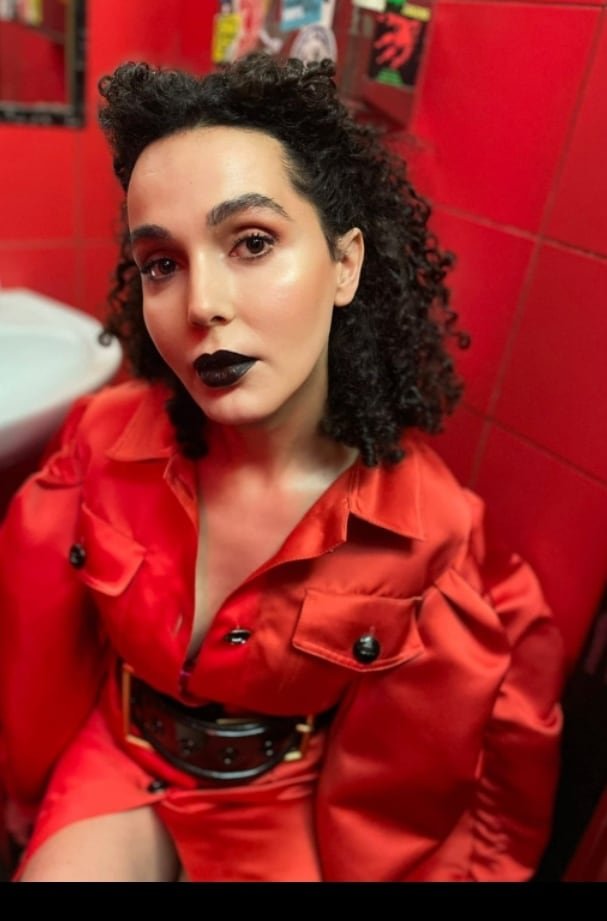TOversatile actress, singer and artist, Lilith Spring lends his voice to the audiobook “The Third Sex” Of Ines Testoniavailable at Audible. A The Wom tells why it was a profound and moving experience
A work that celebrates gender fluidity and invites openness, reflection and breaking the boundaries imposed by old conventions. On Audible, since last month, you can find the audiobook “The Third Sex” (published by Il Saggiatore) by the psychologist and expert in gender studies Ines Testoni. A text that reflects on the clear separation, which has existed since the beginning of the human species, between men and women. A division fueled by religious, linguistic, cultural and social beliefs, which have led us to think of men as strong and resilient, heroes and deities as slaves, and women as weak and fragile bodies, servants meant to serve.
It is precisely this gender schism that Ines Testoni challenges herself in The Third Sex, focusing on the dominant systems of power in our society. Inspired by his works Simon de Beauvoir and his Simone Weilthe author undermines the stereotypes associated with the “weaker sex”, thereby exposing the third gender theory.
Because in order to experience the increasingly fluid and inclusive world of tomorrow, you will need to overcome binaries and sexual and linguistic distinctions of male/female.
The actress reads and performs “The Third Sex”. Lilith Spring, who recently starred in the series Le Fate Ignoranti, based on the film of the same name. We asked her a few questions.
What did it mean to you to lend your voice to this book?
It was an honor and a pleasure to lend my voice to this essay! For me it meant a full immersion in a subject that has drawn my attention more and more deeply since my university years, when I attended the course of studies in Communication and Marketing Psychology at La Sapienza. Some time later, therefore, I became actively acquainted with feminism.

How much do you love this book and how does it affect your experience?
The historical, anthropological and philosophical excursion through which his reading The third sex I was so passionate about it that it prompted me to order a copy of the author’s previous essay as well. It is an intense and at the same time pop writing that offers access to the understanding of the most current issues by people who wish to break free from any kind of chain, be it economic, cultural, religious or biopolitical. Precisely these cases have always been the fire that I carry within me even when, as a child, I was called “devil’s advocate”, because sometimes the simplest explanations were not enough for me.
As a transsexual, you’ve experienced the gender split that Ines Testoni talks about more than most people. How do you think it is possible to bridge this divide?
There are constructs of species that can be placed in particular societies and in particular eras, but which inevitably vary.
I was born a man and I didn’t understand why they expected behaviors and actions from me that I didn’t feel were mine
Instead, I was told that I had behaviors and actions that were not good for a male, that they were “feminine.” Now in my forties, I am a woman born a man, and more often than not I continue to not conform to society’s expectations in this historical period.
Why do you think the need to define, separate and separate the sexes is still so present, why is it still hard not to accept the fluidity of the sexes?
I would not accept “third gender” on an identity document: to me, indicating one’s gender on documents is the equivalent of branding an animal in intensive care.
Socially, sex should be of no interest at all: the wholeness of the person is not defined through a genital organ
This is perhaps why it is difficult to move beyond the binary patterns of masculine/feminine, man/woman, because to transcend is to decide to be “human”. People, not bodies, are objectified with labels so that they are better exploited by a system in which controlling bodies and attitudes means making money. “Fluidity” is more difficult to grasp.
Do you define yourself as an activist: in what way are you and what messages are you trying to spread?
For me, it’s activism to answer these questions with all the attention, care, and honesty I can, trying to stay true to my opinions and my experiences, even when I’m outside the pack. A message I really want to spread? Listen to this book by Ines Testoni, it did me a lot of good!

